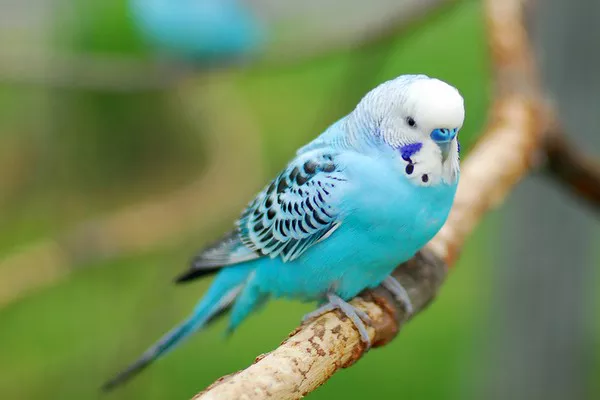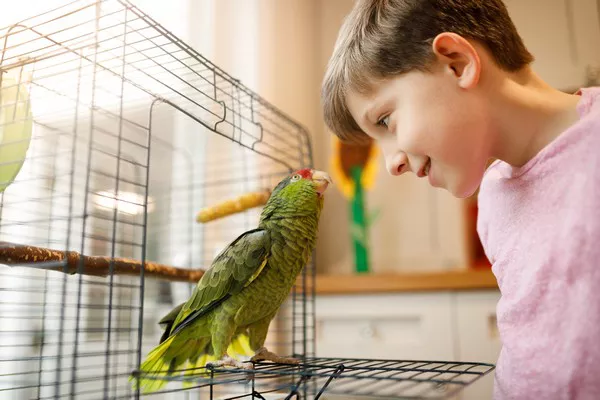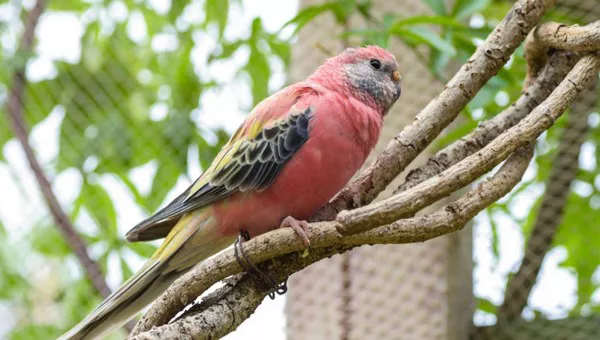Sun Conures are beloved for their vibrant colors, energetic personalities, and affectionate nature. However, like all pet birds, their dietary needs are quite specific, requiring careful attention to ensure they stay healthy and live long, happy lives. For pet owners, understanding which foods are safe for Sun Conures to eat is essential. One commonly asked question among bird enthusiasts is whether Sun Conures can eat tomatoes. This article delves into the specifics of Sun Conure dietary needs, the potential benefits and risks of tomatoes, and practical tips for feeding them a balanced diet.
Understanding the Sun Conure’s Dietary Needs
Sun Conures (Aratinga solstitialis) are medium-sized parrots native to northeastern South America. In the wild, their diet primarily consists of a variety of fruits, seeds, nuts, flowers, and insects. This omnivorous diet is nutrient-dense, supplying Sun Conures with the vitamins, minerals, and energy they need to stay active and healthy.
For pet Sun Conures, a balanced diet should include:
High-quality pellet mix: Comprises 60-70% of their daily intake, providing a balanced nutrient profile.
Fresh fruits and vegetables: Comprise 20-25% of their diet, offering essential vitamins and minerals.
Seeds and nuts: While they enjoy these, seeds should be limited to about 5-10% due to their high fat content.
Occasional proteins: Like boiled eggs or small amounts of lean meat for added protein.
Each of these components plays a role in ensuring that pet Sun Conures get a variety of nutrients, but fresh fruits and vegetables are especially important. Owners often wonder if tomatoes, a common household fruit, are suitable for their feathered friends.
Nutritional Profile of Tomatoes
Tomatoes are a popular fruit packed with beneficial nutrients. Here is a summary of their main components:
Vitamins: High in Vitamin C, Vitamin K, and Vitamin A.
Minerals: Rich in potassium, which helps with heart health.
Antioxidants: Contains lycopene, a powerful antioxidant that can reduce inflammation.
Water Content: Composed of about 95% water, which makes them hydrating.
While tomatoes are nutrient-rich, there are specific factors that must be considered when deciding if they’re suitable for Sun Conures.
Are Tomatoes Safe for Sun Conures?
Tomatoes are a subject of debate when it comes to feeding them to pet birds, including Sun Conures. They are technically safe for birds, but there are some important caveats to keep in mind.
Pros of Feeding Tomatoes to Sun Conures
Nutritional Benefits: Tomatoes contain vitamins and antioxidants that can support immune health, cellular protection, and eye health in birds.
Hydration: Due to their high water content, tomatoes can help keep your bird hydrated, which is essential during hot weather.
Low-Calorie: Tomatoes are low in calories and fats, making them suitable as a light snack or treat.
Risks of Feeding Tomatoes to Sun Conures
Despite these benefits, tomatoes can pose risks to Sun Conures and other pet birds:
Acidity: Tomatoes are highly acidic, which can cause digestive upset in birds. Birds have delicate gastrointestinal systems that may react to acidic foods, leading to discomfort or diarrhea if consumed in excess.
Solanine in Green Parts: The green parts of tomato plants, including the leaves and stems, contain solanine, a compound that is toxic to birds and other animals. This compound is not present in the fruit itself, but even small traces can be harmful.
Risk of Pesticide Residues: Many tomatoes are treated with pesticides, which can linger on the skin. If a tomato has not been thoroughly washed, it can expose birds to harmful chemicals.
Possible Allergies: Some birds may have allergies or sensitivities to tomatoes, causing symptoms like itching, rashes, or digestive upset. Always introduce new foods slowly and watch for any adverse reactions.
How to Safely Feed Tomatoes to Your Sun Conure
If you decide to offer tomatoes to your Sun Conure, there are some guidelines to minimize potential risks and ensure that they enjoy this treat safely:
Remove All Green Parts: Ensure that your Sun Conure only has access to the red, ripe part of the tomato. Discard any stems, leaves, or unripe portions.
Moderation is Key: Due to the acidity of tomatoes, it’s essential to offer only small portions and on an infrequent basis. A small slice of tomato once or twice a month is generally safe.
Wash Thoroughly: To remove any pesticides, dirt, or other residues, wash tomatoes thoroughly before serving. Organic tomatoes can reduce the risk of pesticide exposure but should still be washed.
Consider Cherry or Grape Tomatoes: These smaller tomato varieties tend to be sweeter and less acidic. Serving a small cherry tomato slice can reduce the acid content per serving.
Observe for Any Reactions: After introducing tomatoes, keep a close eye on your Sun Conure for any signs of digestive upset or behavioral changes, such as lethargy or reduced appetite.
Alternatives to Tomatoes for Sun Conures
Given the potential risks, many pet owners prefer to offer their Sun Conures safer, more bird-friendly fruits and vegetables. Here are some healthy alternatives:
Bell Peppers: Nutrient-rich and low in acidity, bell peppers (especially the red, yellow, and orange varieties) are an excellent choice. They’re also high in vitamin C, similar to tomatoes.
Carrots: Carrots are a favorite among many parrots and contain beta-carotene, which is good for eye health.
Apples: Apples are a safe and popular treat, but remember to remove seeds as they contain cyanide, which is toxic to birds.
Berries: Strawberries, blueberries, and raspberries are packed with antioxidants and are generally safe for birds in small portions.
Cucumbers: Cucumbers are refreshing, low in calories, and less acidic, making them a great snack option.
Each of these alternatives provides nutritional benefits without the acidity concerns associated with tomatoes, making them ideal options for pet birds.
How Much Fresh Food Should Sun Conures Have?
Fresh fruits and vegetables should be included in the diet of a Sun Conure but in moderate amounts. Here is a general guideline:
Pellets (60-70%): High-quality pellets are specially formulated to meet the nutritional needs of parrots and should make up the bulk of their diet.
Fresh Produce (20-25%): Aim for a colorful mix of bird-safe vegetables and fruits each week.
Treats (5-10%): Seeds, nuts, and occasional table scraps can be given as treats but should be limited due to their high fat content.
Tips for Introducing New Foods to Your Sun Conure
Birds can be picky eaters, and introducing new foods can take time. Here are some tips for helping your Sun Conure try new fruits and vegetables:
Be Patient: Birds are naturally cautious and may not eat a new food right away. Try offering it multiple times before deciding they don’t like it.
Offer Variety: Include different colors, shapes, and textures of foods. Birds are visually stimulated and might be more interested in trying something that catches their eye.
Serve in Small Pieces: Sun Conures often prefer bite-sized pieces that are easy to hold and chew. Avoid giving large chunks.
Try Mixing with Familiar Foods: If they’re hesitant, try mixing a small amount of a new food, like a bell pepper or carrot, with something they already enjoy.
Observe Eating Habits: Always monitor your Sun Conure when they try a new food. If they eat it enthusiastically, it’s likely a good addition to their diet; if they ignore it, try offering it again at a later time.
Conclusion
While tomatoes can technically be given to Sun Conures, they should only be offered in small amounts and on rare occasions due to their acidity and the potential for digestive issues. Ensuring that all green parts are removed and that the tomato is thoroughly washed can mitigate some risks. However, given the variety of other safe fruits and vegetables available, many pet owners prefer to avoid tomatoes altogether, opting instead for safer alternatives like bell peppers, carrots, or berries.
As with any dietary decision, it’s always wise to consult an avian veterinarian, especially if you’re unsure about specific foods. A balanced diet, appropriate portion sizes, and attention to your Sun Conure’s individual preferences will go a long way in maintaining their health and happiness.
Related Topics:


























